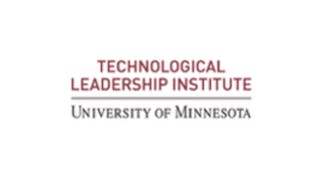This course provides an introduction to some additional process techniques critical to the microfabrication process flow. Learners will be able to explain how the electroplating process produces coatings on devices, including some specific considerations for magnetic materials. Device packaging, testing, and other back-end-of-line (BEOL) processes will be introduced and discussed.


您将获得的技能
要了解的详细信息

添加到您的领英档案
August 2025
10 项作业
了解顶级公司的员工如何掌握热门技能

积累特定领域的专业知识
- 向行业专家学习新概念
- 获得对主题或工具的基础理解
- 通过实践项目培养工作相关技能
- 获得可共享的职业证书

该课程共有4个模块
In this module, we present some of the fundamental principles and considerations for the electrodeposition of materials. You will learn some basic electrochemical principles that are foundational to understanding the electroplating process. We will discuss some of the physical phenomena and bath constituents that impact electrodeposition and how they can be controlled. Lastly, we will walk through the process flow for copper electroplating commonly used in the semiconductor industry.
涵盖的内容
3个视频2篇阅读材料3个作业
Unique considerations for the electrodeposition of magnetic materials are discussed. The deposition of magnetic materials is one of the key drivers to innovation and development of electrodeposition in the microfabrication ecosystem. You will learn some relevant magnetic properties and the distinction between hard and soft magnetic materials. We then discuss key alloy systems commonly deposited for these applications and learn how to work with ternary diagrams. The module concludes with deposition techniques and parameters of interest for magnetic materials and discussion on the continued work to develop and improve upon this unique fabrication process.
涵盖的内容
3个视频2篇阅读材料3个作业
This module introduces the Back End of the Line assembly process steps of wafer test, chip singulation, chip packaging, and final package test. Test types during various phases of process development and different test variables for IC and MEMS device types are presented. Chip packaging technology evolution over the years is covered. Product requirements drive the IC chip packaging technology development. A few types of MEMS device packaging are touched upon.
涵盖的内容
2个视频4篇阅读材料2个作业1个插件
This module covers metrology, inspection, and characterization of micro device chips like MEMS, and IC chips. Metrology is presented from the production flow perspective where quality control, yield, and cycle time are critical. Working principle and metrology equipment architecture are presented for the mostly widely used tools like high magnification optical microscopes and SEMs.
涵盖的内容
2个视频5篇阅读材料2个作业
获得职业证书
将此证书添加到您的 LinkedIn 个人资料、简历或履历中。在社交媒体和绩效考核中分享。
从 Electrical Engineering 浏览更多内容
 状态:免费试用
状态:免费试用University of Minnesota
 状态:免费试用
状态:免费试用University of Minnesota
 状态:免费试用
状态:免费试用University of Minnesota
 状态:免费试用
状态:免费试用University of Minnesota
人们为什么选择 Coursera 来帮助自己实现职业发展




常见问题
To access the course materials, assignments and to earn a Certificate, you will need to purchase the Certificate experience when you enroll in a course. You can try a Free Trial instead, or apply for Financial Aid. The course may offer 'Full Course, No Certificate' instead. This option lets you see all course materials, submit required assessments, and get a final grade. This also means that you will not be able to purchase a Certificate experience.
When you enroll in the course, you get access to all of the courses in the Specialization, and you earn a certificate when you complete the work. Your electronic Certificate will be added to your Accomplishments page - from there, you can print your Certificate or add it to your LinkedIn profile.
Yes. In select learning programs, you can apply for financial aid or a scholarship if you can’t afford the enrollment fee. If fin aid or scholarship is available for your learning program selection, you’ll find a link to apply on the description page.
更多问题
提供助学金,





